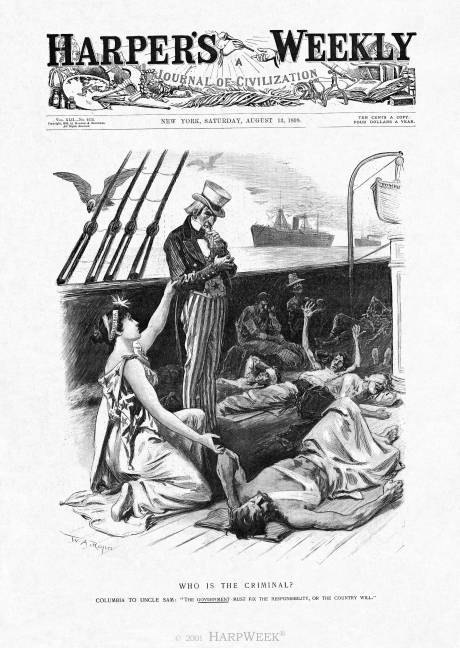It has been a splendid little war, begun with the highest motives, carried on with magnificent intelligence and spirit, favored by that Fortune that loves the brave. It is now to be concluded, I hope, with that fine good nature, which is, after all, the distinguishing trait of the American character.
John Hay, US Ambassador to Great Britain, letter to Theodore Roosevelt, July 1898
In many ways, Theodore Roosevelt’s future Secretary of State was correct. The War was short and victorious for the US, with the divisions of the Civil War largely forgotten by white Americans, North and South, unified in the fight against Spain. This was symbolized by the rapturous reception the 6th Massachusetts received from the citizens of Baltimore as it passed through on its way to ship out, box lunches were given to the men in a huge celebration, a stark departure from the bloody greeting received by the regiment from the citizens of Baltimore on its way to Washington in 1861 at the onset of the Civil War.
However, in the aftermath of the War journalists and returning veterans told tales of rampant mismanagement, of appalling rations, inadequate uniforms and chaotic transport. A political storm arose and President McKinley appointed a commission to investigate the conduct of the War. Colonel Theodore Roosevelt, who had been unsparing in his private comments about the mismanagement of the Cuban campaign, appeared before the Committee on November 22, 1898, a few weeks after his election as Governor of New York. Go here to read his testimony. Roosevelt was restrained in his testimony, noting that the rapid expansion of the Army was bound to encounter problems, and that these problems could be partially alleviated by large scale maneuvers in peace time.
The Commission, commonly called the Dodge Commission after its Chairman General Grenville M. Dodge, would publish its report on February 9, 1899. While exonerating the War Department it implied that Secretary of War Russell A. Alger, a Civil War combat soldier who rose from private to Colonel, had been incompetent. Alger denied this, but resigned on July 19, 1899.


